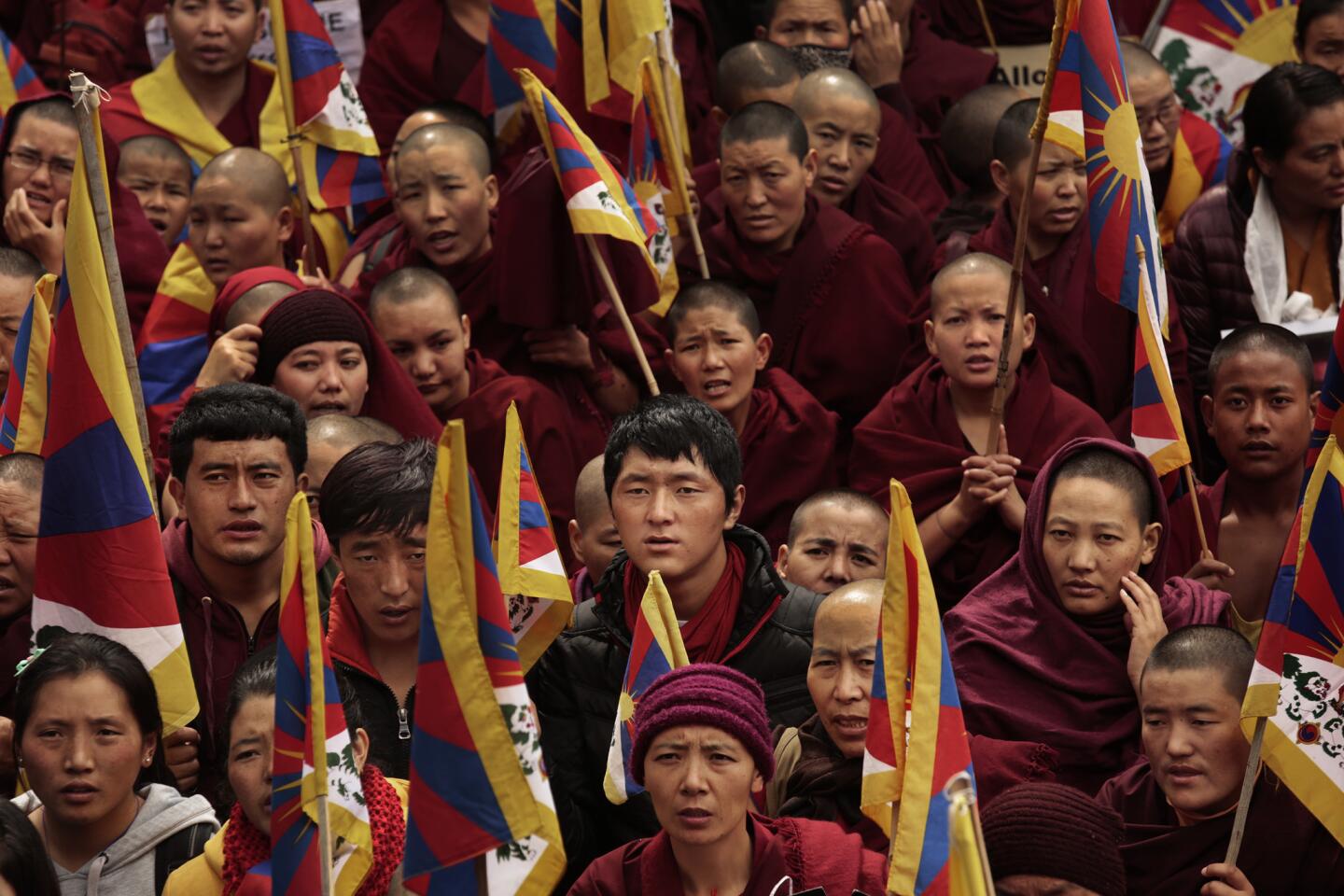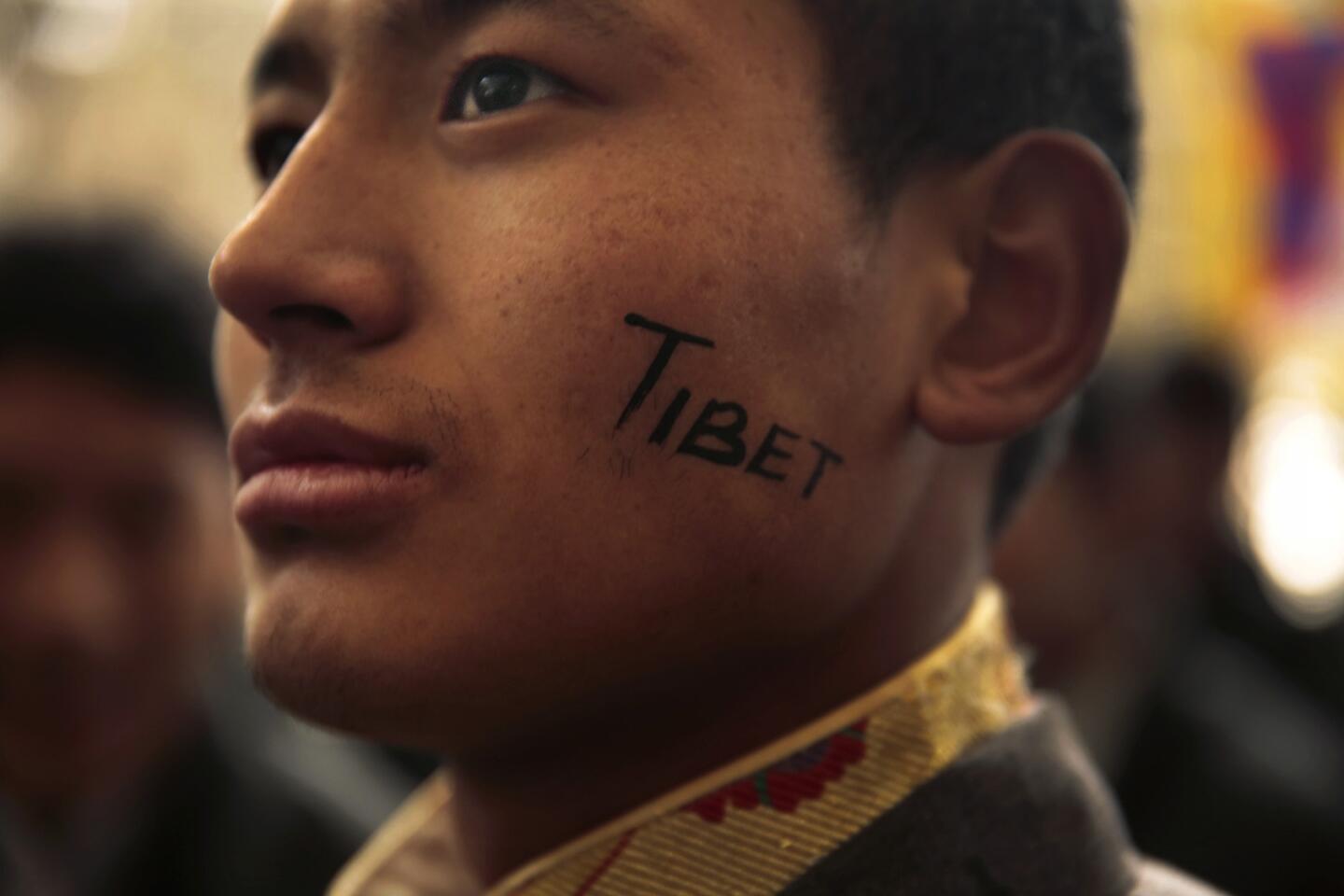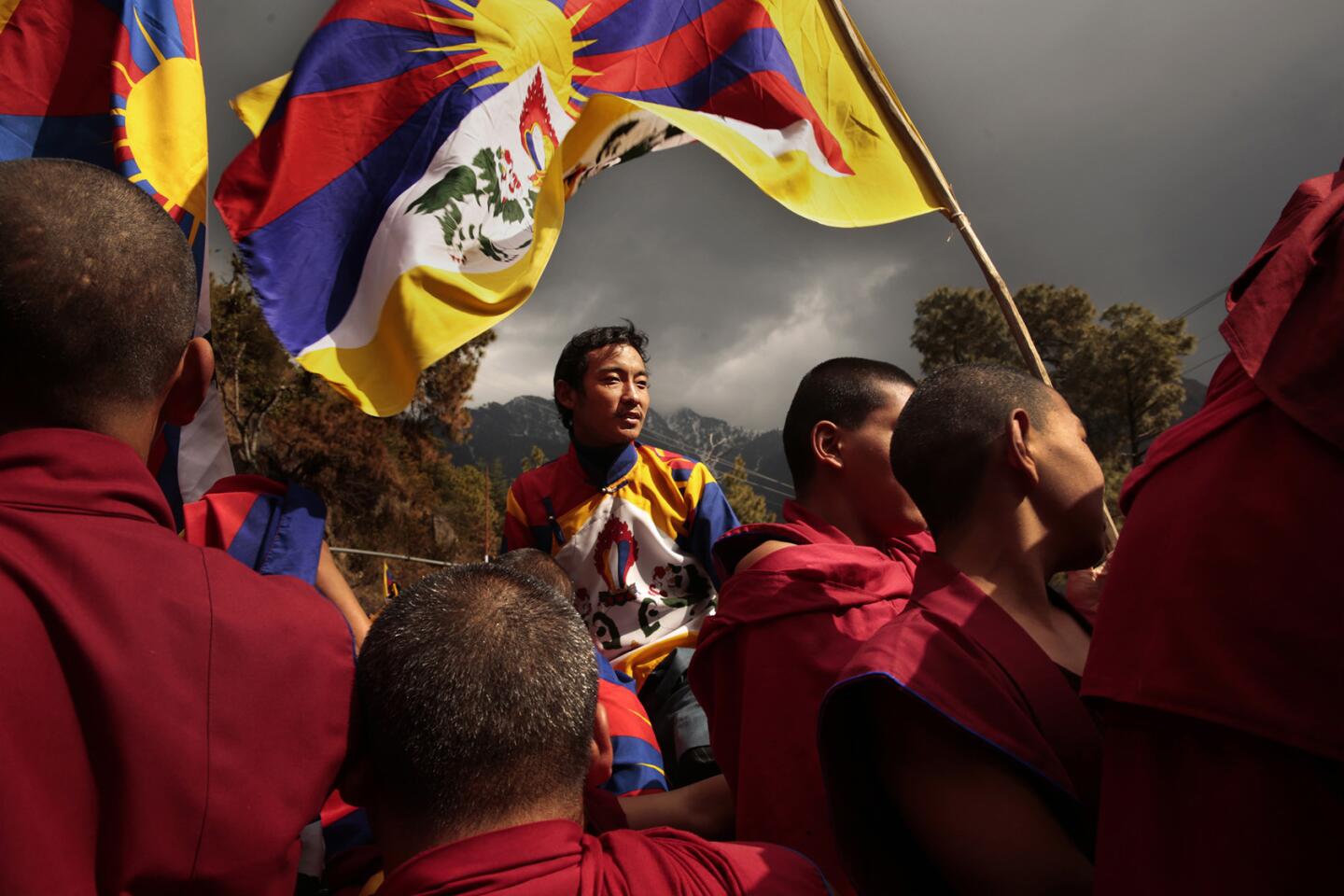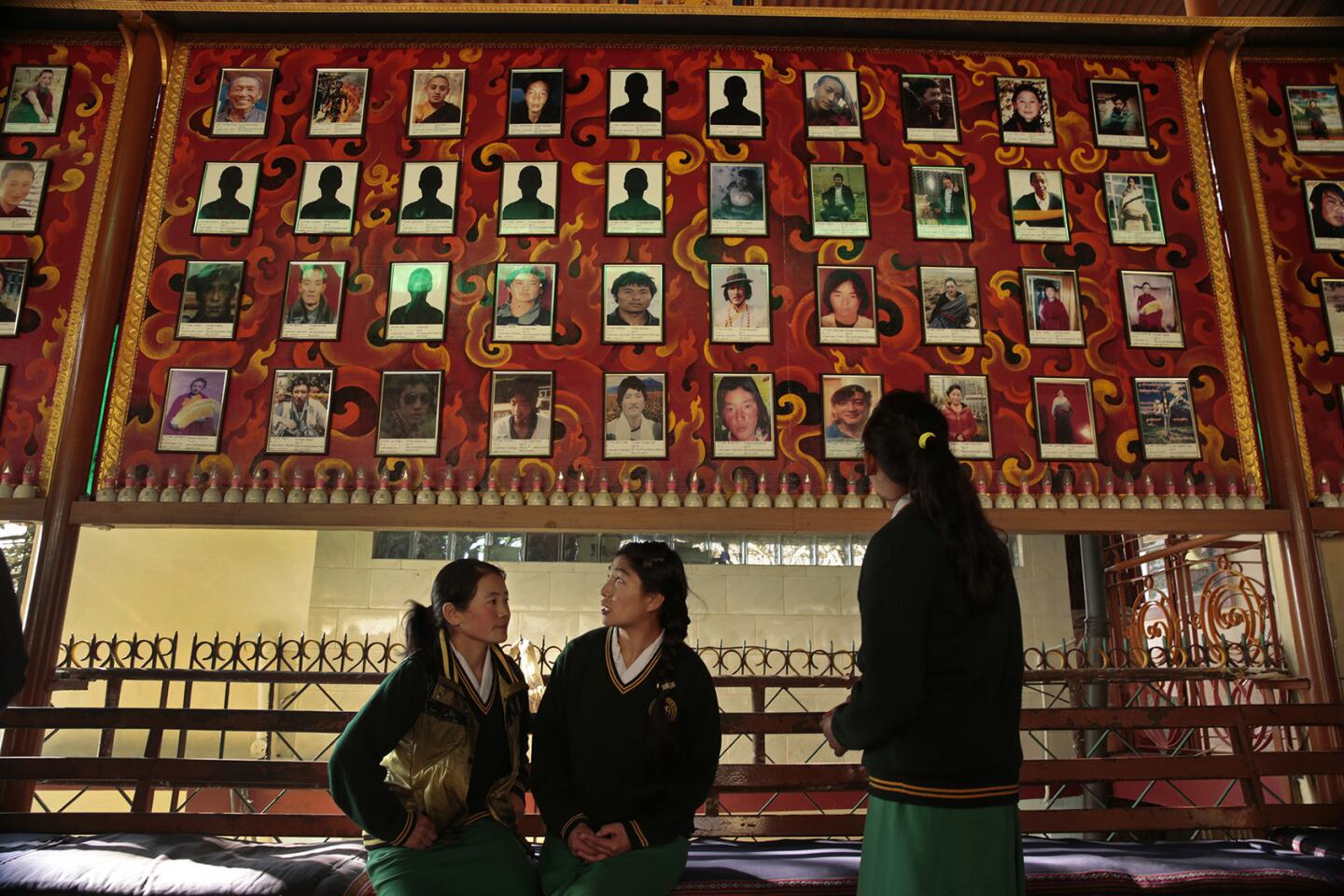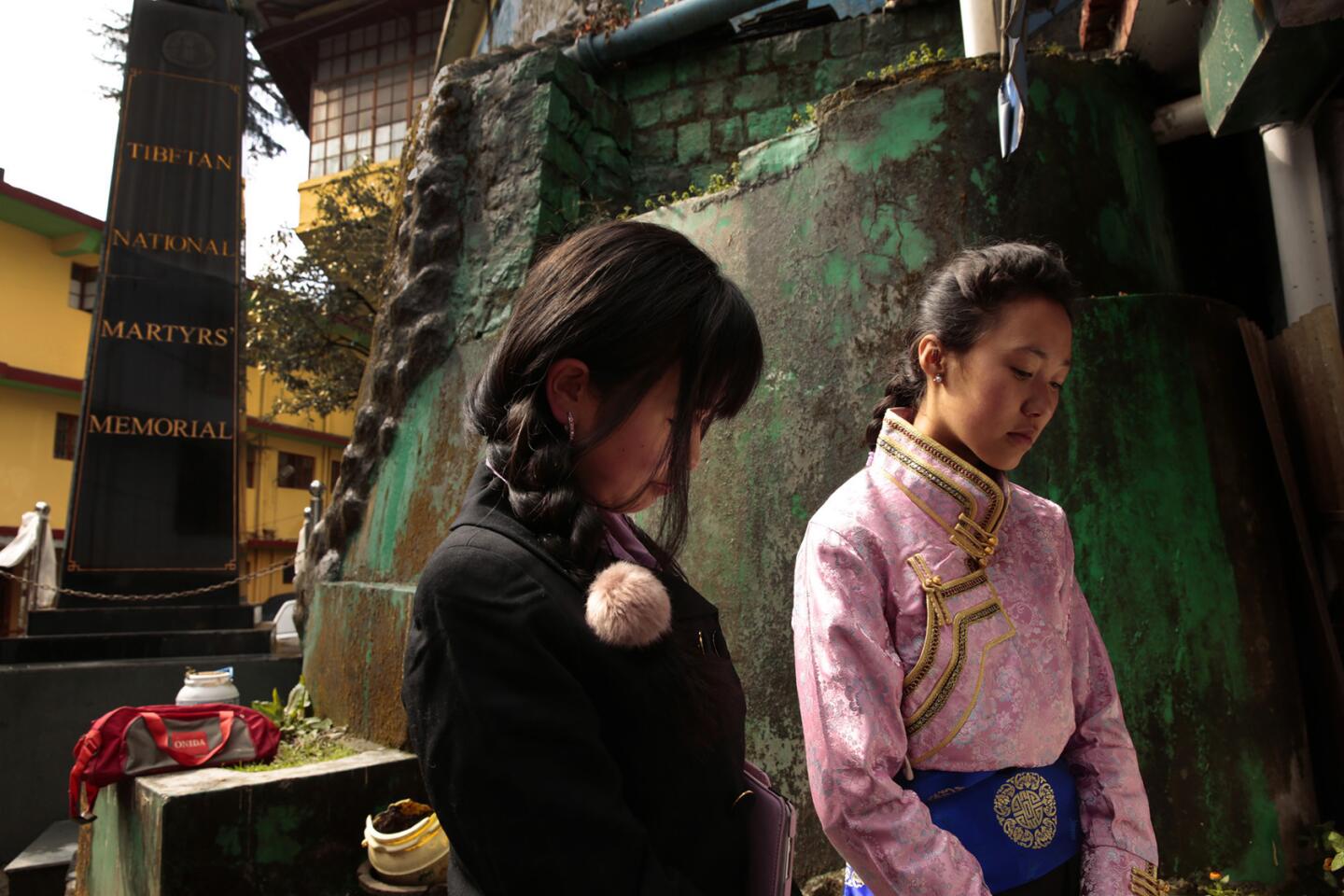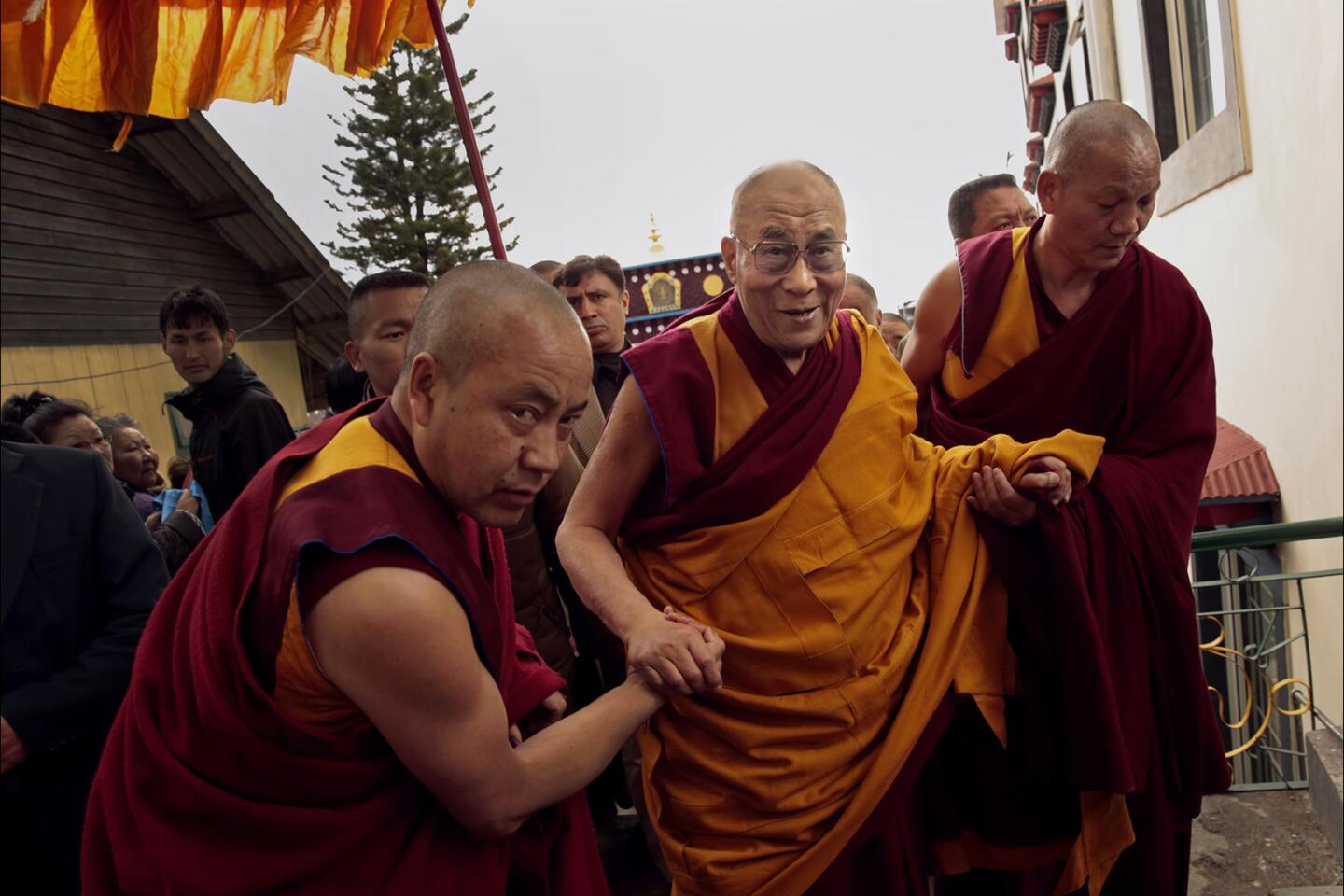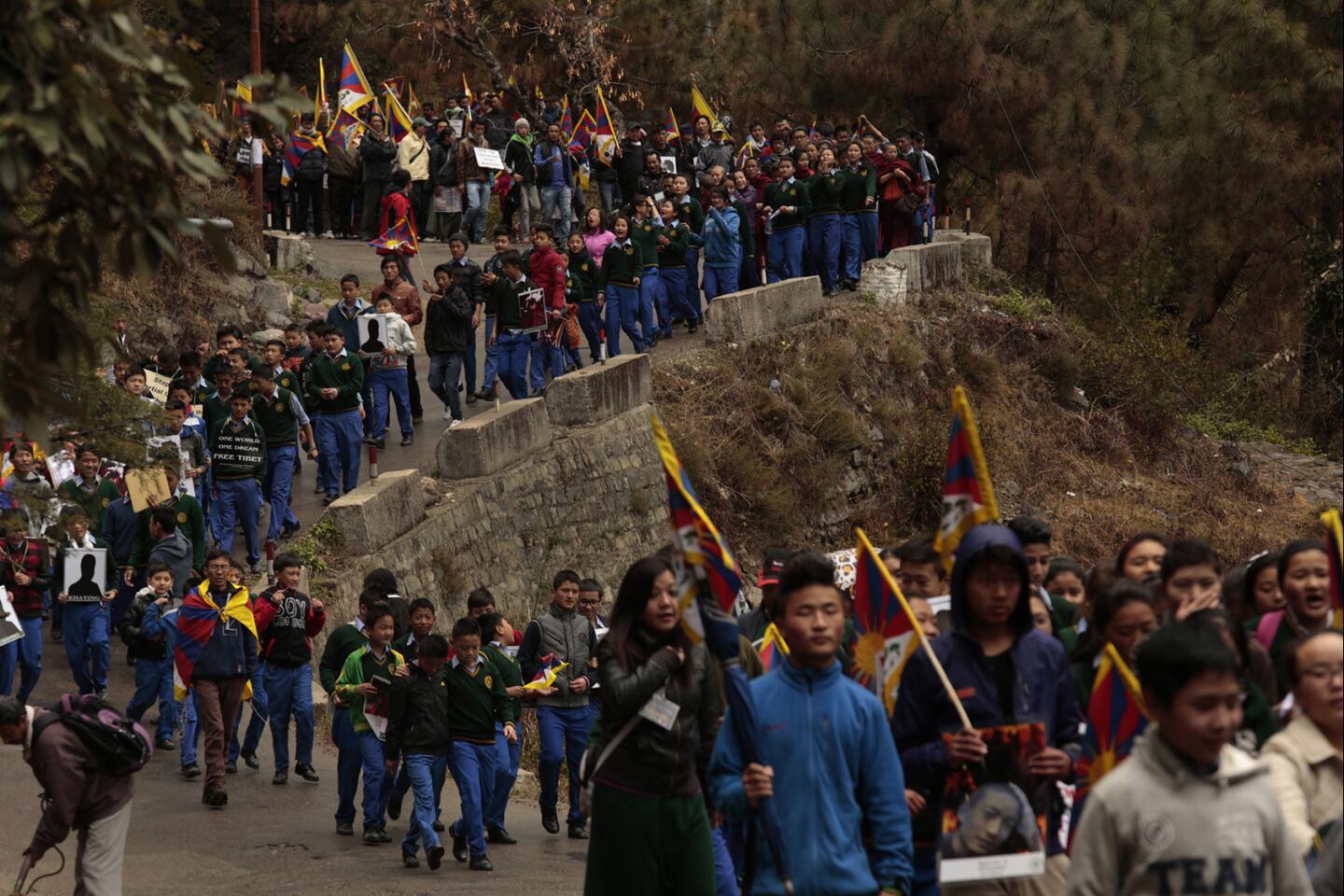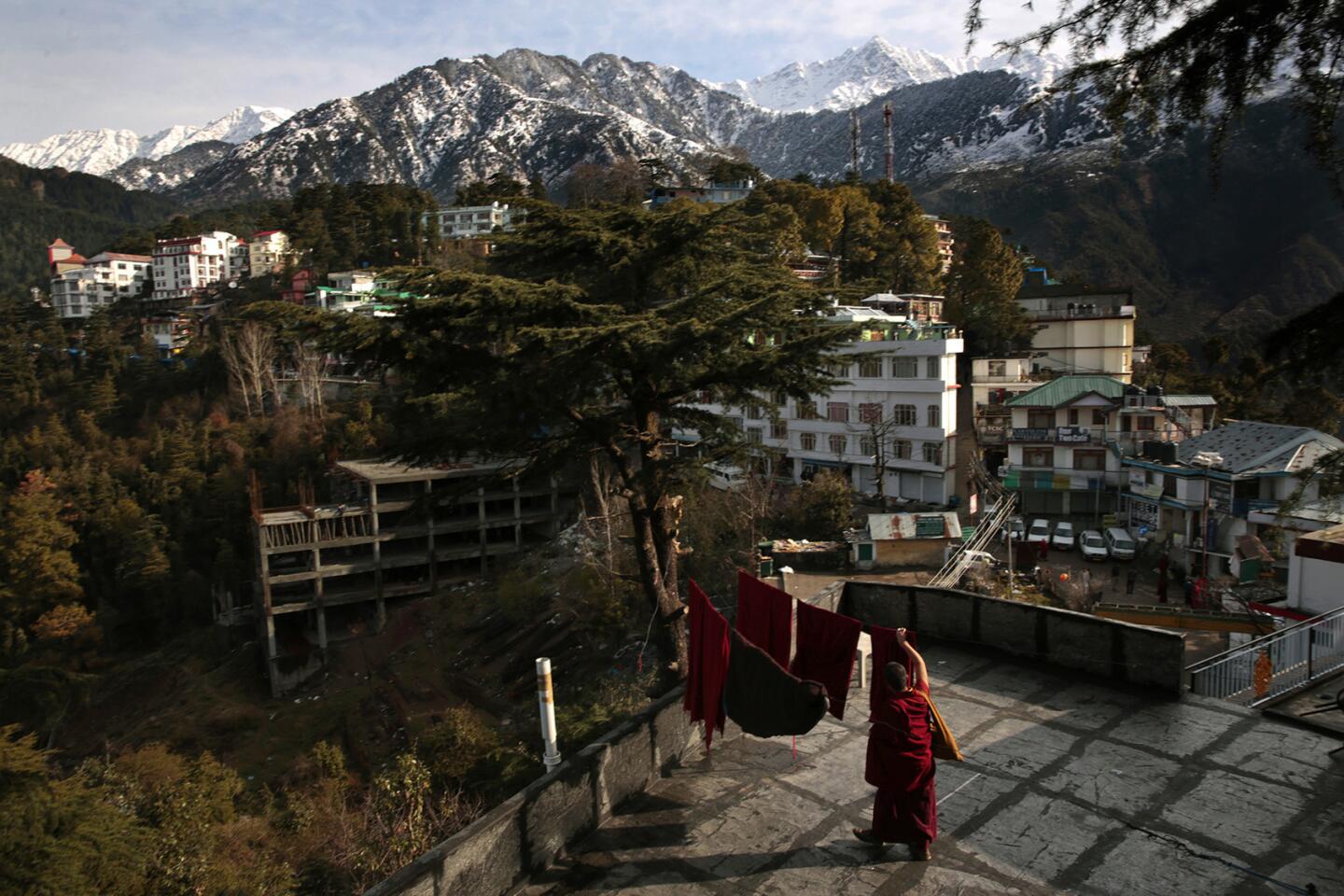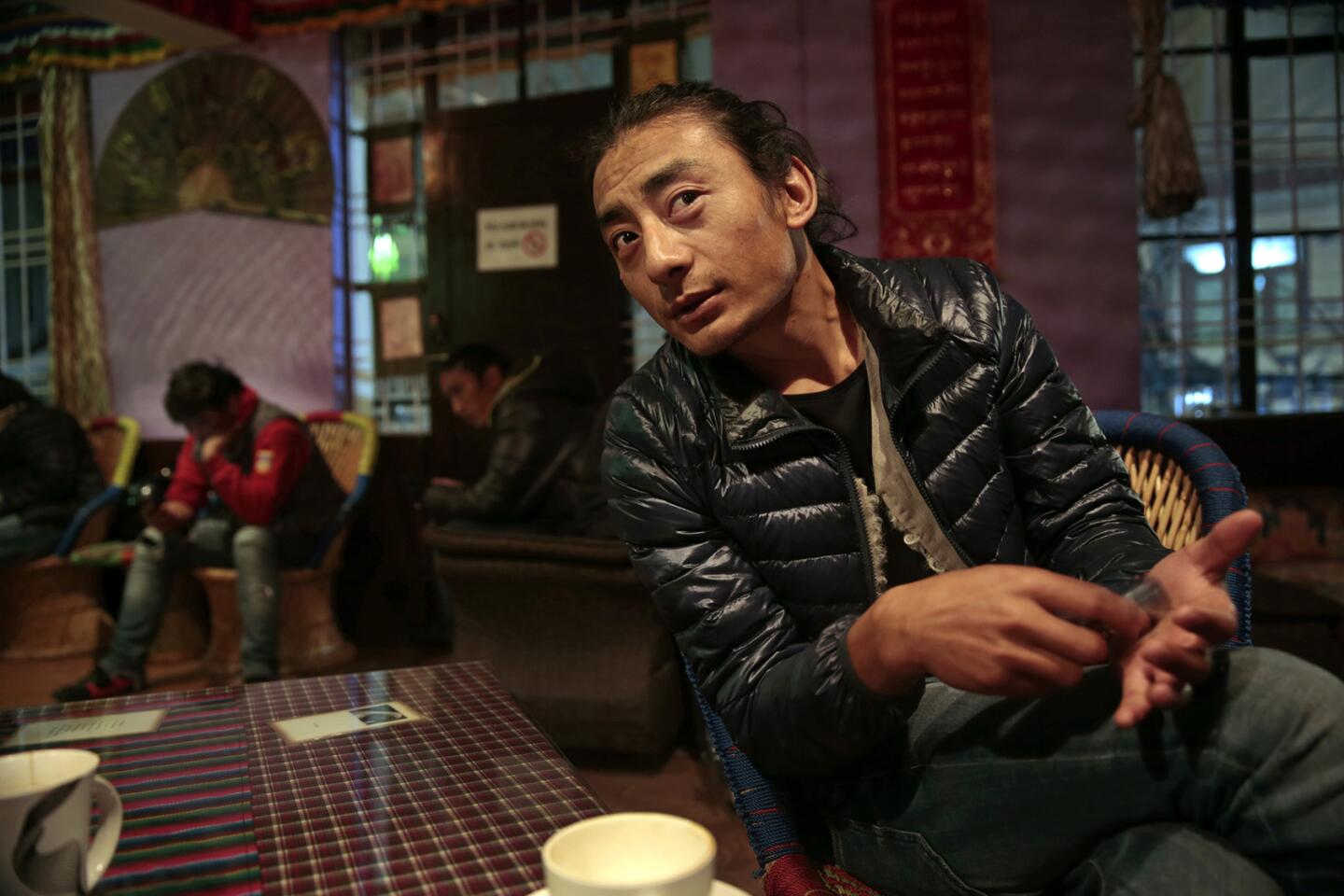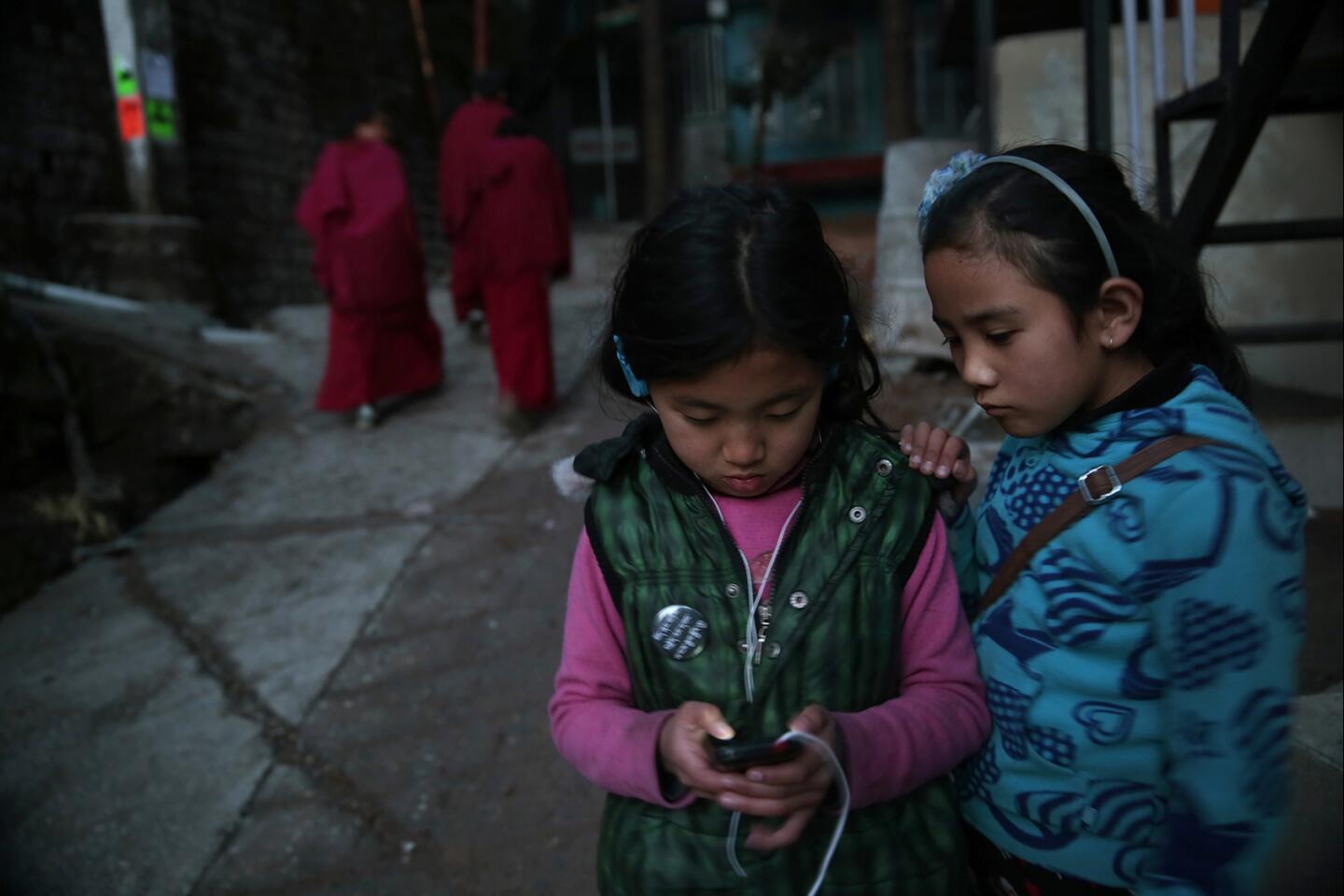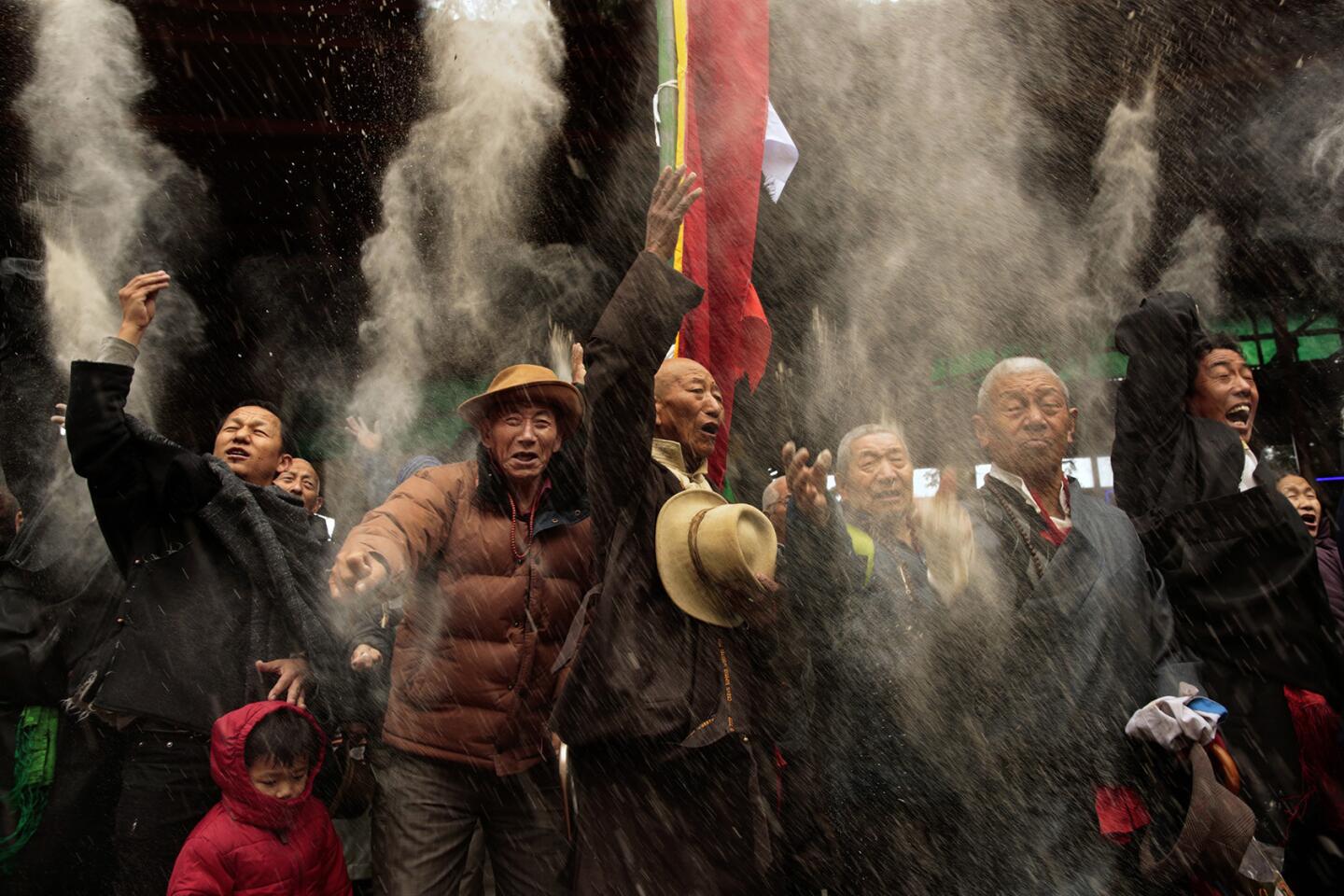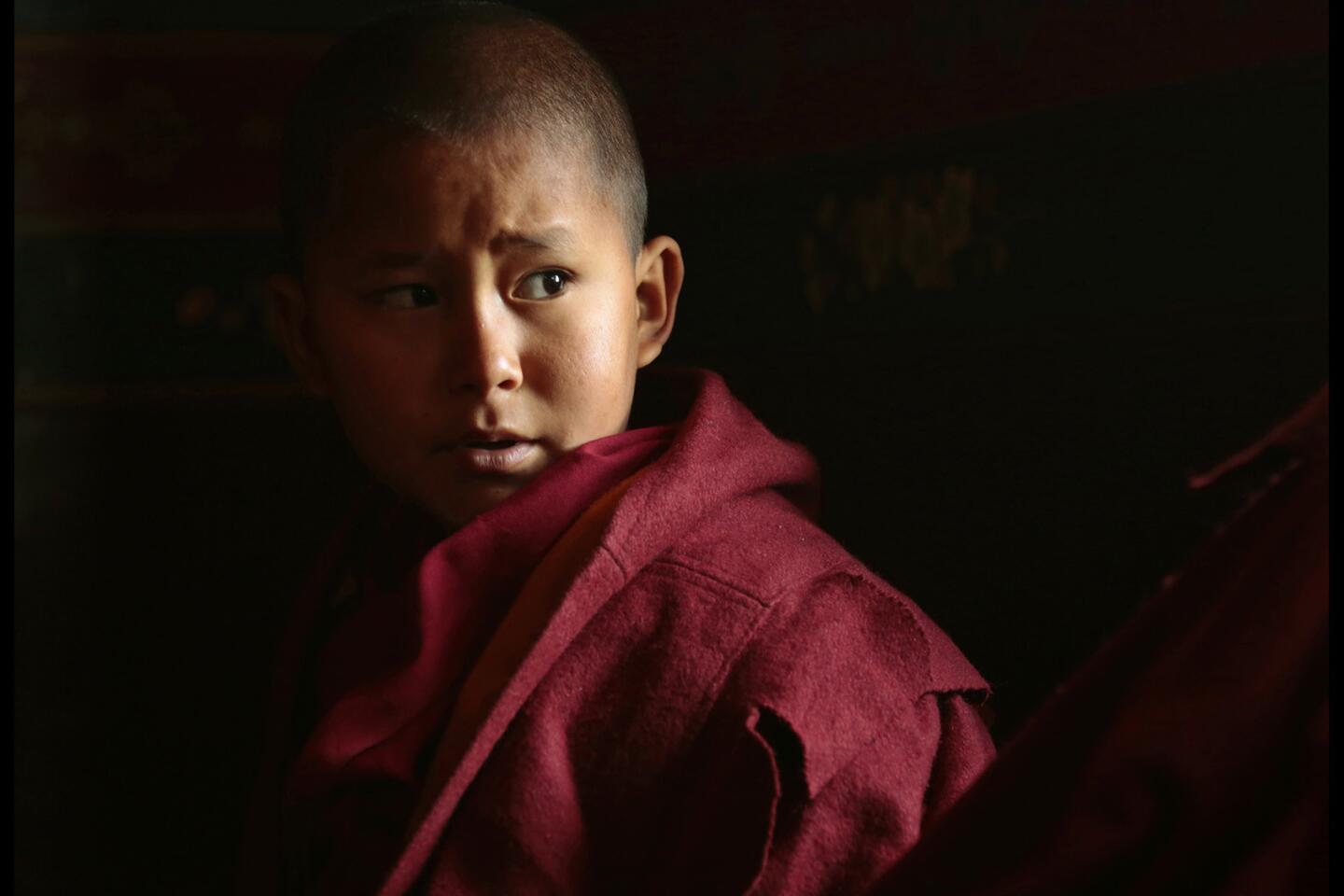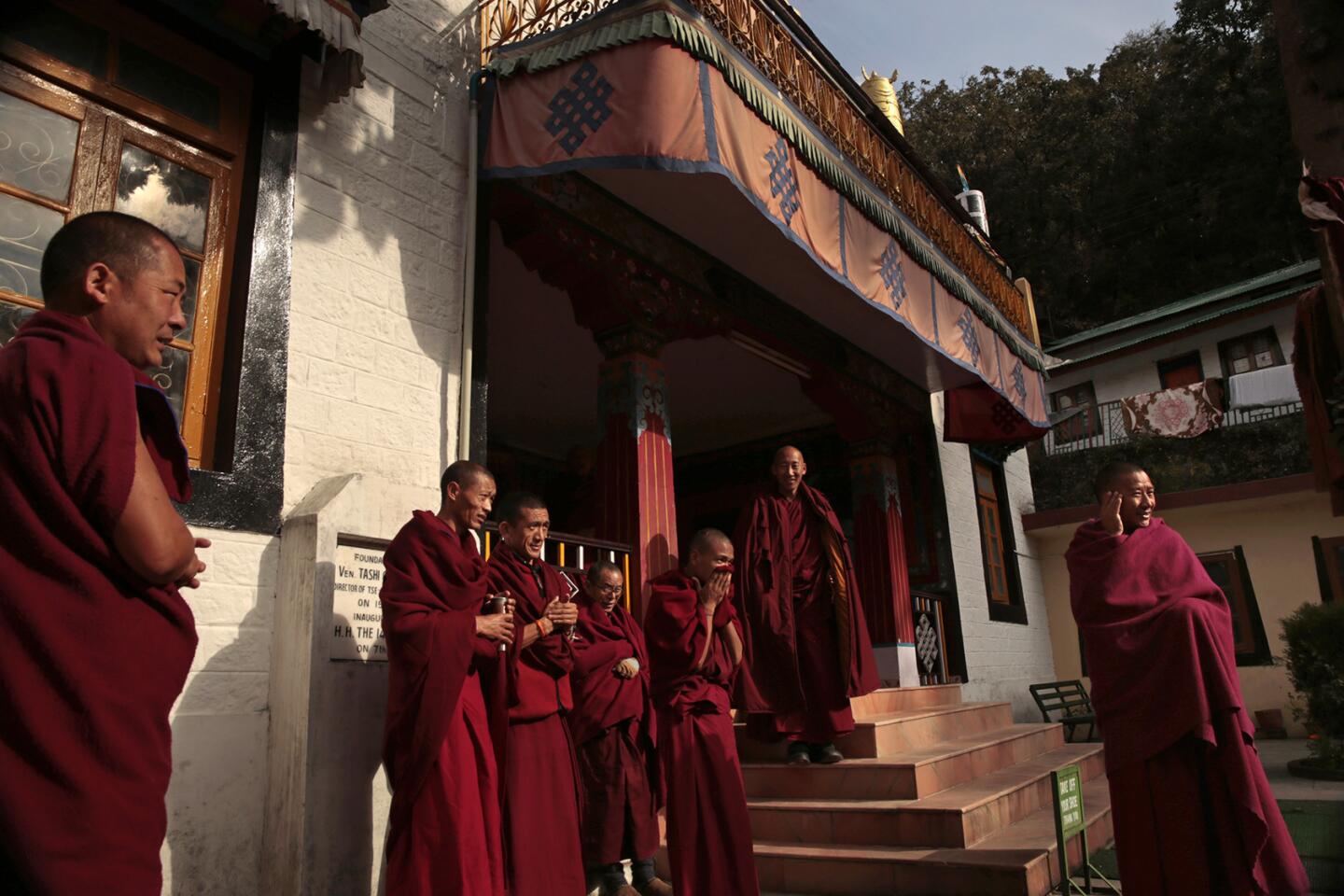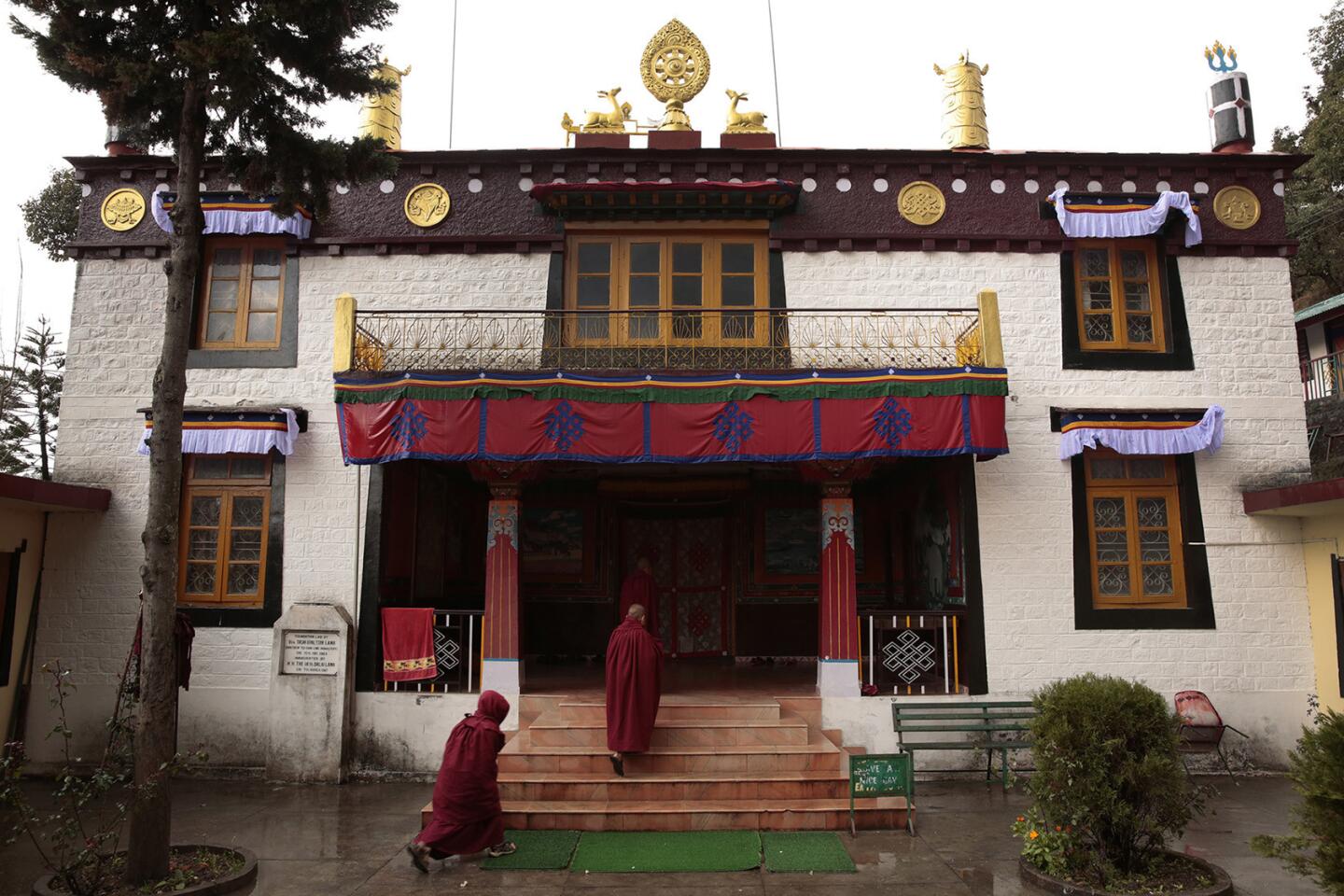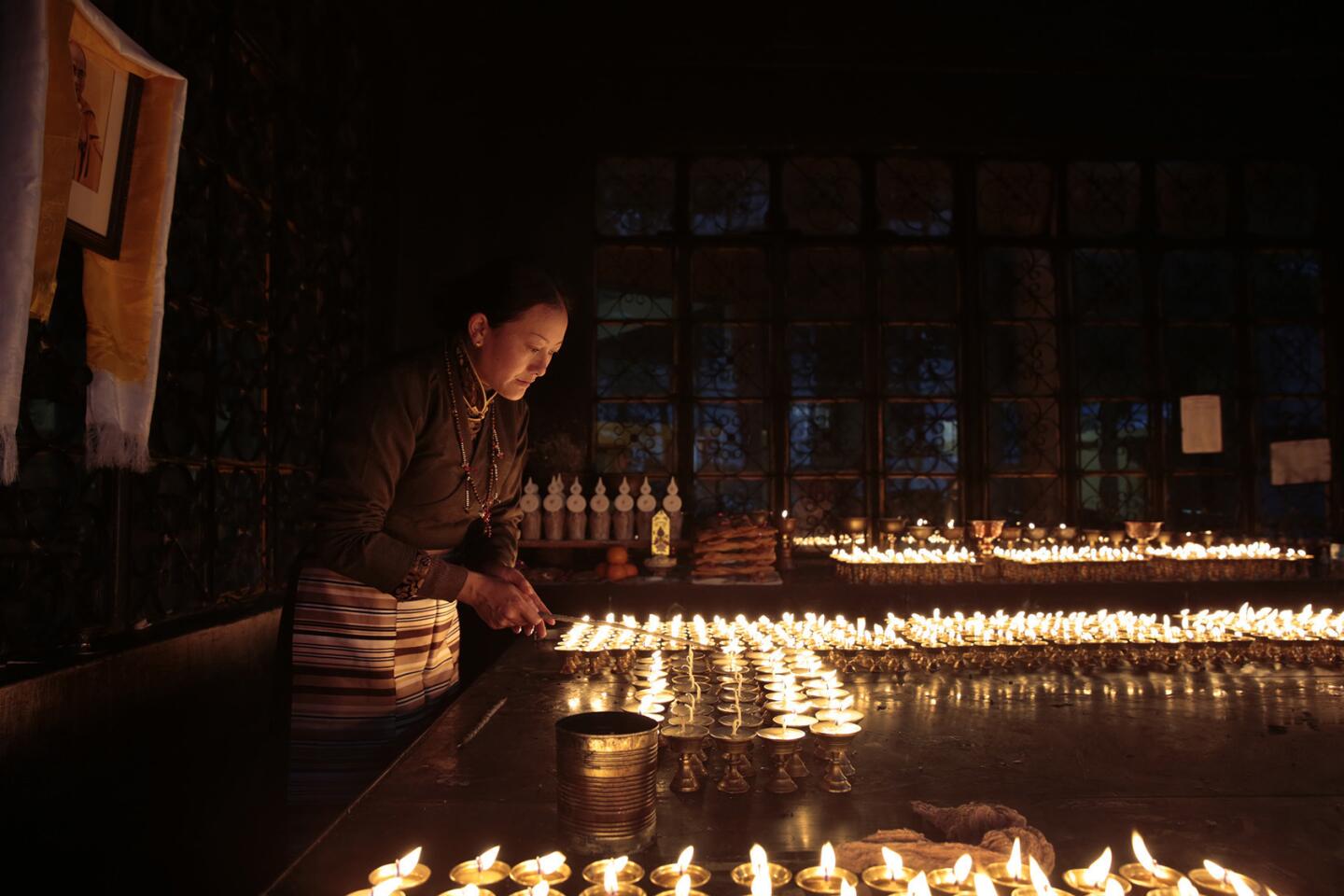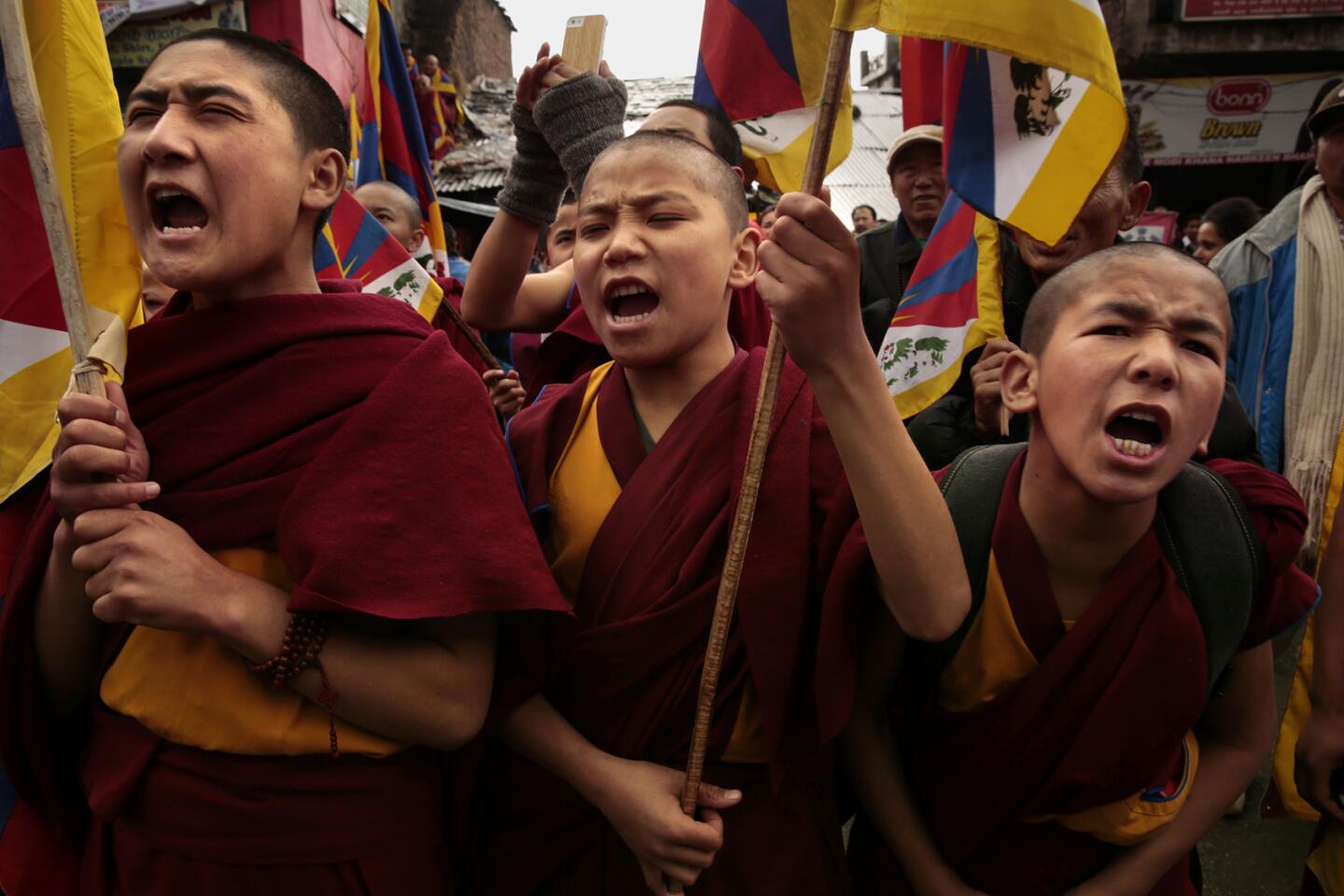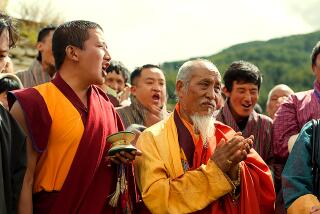Tibet’s Road Ahead: Dalai Lama’s 80th birthday invites celebration and contemplation
To hear the Dalai Lama laugh, his face lighting up in a beatific smile, it is easy to forget the cascade of disasters endured by the Tibetan Buddhist movement over the course of his life.
Yet the list is long, and growing longer, as an ascendant China consolidates control over Tibet.
On the cusp of the Dalai Lama’s 80th birthday Monday, which he will mark during a three-day visit to Anaheim, China’s rising economic clout is slowly strangling the movement for Tibetan independence and, in the process, nudging the charismatic Tibetan spiritual leader off the world stage.
Under Chinese pressure, South Africa refused to grant him a visa last year to attend a gathering of Nobel laureates. Even Pope Francis, presumably worried about the fate of Chinese Catholics, declined to grant him an audience in December.
The 94,000-strong Tibetan community in India, which for years has operated a government in exile headquartered in this mountain resort, is shrinking as a result of tighter Chinese controls on borders and passports that keep the 6 million Tibetans living in China from leaving.
At the same time, after a decades-long exodus, a new phenomenon is occurring: Tibetans are quietly requesting Chinese documents to go home, implicitly acknowledging that China’s rule over Tibet is here to stay.
“Everybody knows that the economic situation is better over there than here,’’ said a Tibetan engineer in his 30s who is preparing to return soon and asked not to be named for fear of reprisals. “We’re paid very well back in Tibet and people feel it is better to go back home than to live here in a shack.’’
And yet Tibetans at home are not happy. Since 2009, 140 Tibetans have immolated themselves to protest Chinese policies that limit their freedom of movement, speech and religion, especially their right to venerate the Dalai Lama.
Exiled from his homeland since 1959, the Dalai Lama views these setbacks and challenges with the air of a man who meditates five hours a day and takes a transcendental approach to adversity.
“I don’t consider China powerful at all,’’ he said during an interview at the sprawling complex of Buddhist temples here. “They may be powerful in their economics and weapons, but in terms of moral principles, they are very weak. The whole society is full of suspicion and full of distrust.”
Looming over any discussion of Tibet is a simple actuarial fact: The Dalai Lama is in his final decades of life. At some point, Tibetan Buddhists will be faced with the loss of a man who has been revered as both a secular and spiritual leader and has given their Free Tibet movement a sense of moral authority throughout the world.
That has set in motion in recent months a scramble for succession of a uniquely Buddhist variety, because the Dalai Lama’s successor is by tradition the reincarnation of his holiness. In March, the Chinese government once again signaled its intention to have a role in designating the legitimate heir, a plan that prompted the Dalai Lama to suggest that he may break with tradition and appoint his own successor or that he may not be reincarnated at all.
“Reincarnation is not the business of the communists,’’ he said.
+++
Born on July 6, 1935, the 14th Dalai Lama began life as Lhamo Dondrub in a village in China’s Qinghai province. As the story goes, the deceased 13th Dalai Lama was found with his head turned in that direction and a search party was sent to identify his reincarnation. They were delighted to find a precocious toddler who could correctly identify the Dalai Lama’s walking stick, rosary and drum.

On the cusp of the Dalai Lama’s 80th birthday, many Tibetans wonder whether their struggle for autonomy and religious freedom will soon be lost. Desperation can be seen in the number of self-immolations that have occurred since the religious uprisin
He was brought to Lhasa, the Tibetan capital, at age 4 and assumed rule over Tibet as a 15-year-old in 1950.
Tibet had been run as a de facto independent country in the chaotic early 20th century, but it had not been formally recognized. In 1949, Chinese Communists claimed power in distant Beijing and proved to be a force that the Himalayan mountain kingdom could not overcome.
For China, the 965,000-square-mile region known as the Tibetan plateau, spread over strategic high ground in the center of Asia, is a crucial buffer from India, Nepal and Bangladesh. Encompassing roughly one-quarter of China’s landmass, it is the source of most of Asia’s largest rivers, supplying water to nearly half the world’s population. It also has the largest reserve of uranium in the world.
The struggle to subdue Tibet has shaped the character of modern China, forcing it to become the kind of brutal imperial power the early communist ideologues once deplored. Beijing devotes inordinate military and diplomatic effort to defend its claim to Tibet, which it calls “an integral part of China since antiquity.”
“The Chinese know that historically their empire was weak when control over the western borders lapsed,’’ said Sulmaan Wasif Khan, a specialist in Chinese foreign relations at Tufts University.
Tibetan resistance to Chinese rule has been relatively nonviolent compared with ethnic disputes elsewhere, such as those involving Kurds or Chechens.
Robert Barnett, a Tibet scholar at Columbia University in New York, counts only about 20 Han Chinese (the ethnic majority in China) who have been killed by political violence at the hands of Tibetans since the 1980s. The death toll among ethnic Tibetans is higher, in the hundreds including those who have self-immolated with calls for the Dalai Lama to return.
Reincarnation is not the business of the communists.
— The Dalai Lama
If he dies in exile, though, that could change. “People may feel the Chinese forced him to die outside his country and caused him grief, and they could reap a terrible harvest of suffering,’’ Barnett said.
At the heart of the dilemma is the Dalai Lama. Although he abandoned calls for Tibetan independence in 1979, embracing instead a “middle way” in which Tibetans would enjoy autonomy and freedom of religion and speech under Chinese rule, the Chinese Communist Party reviles him as a separatist.
“The Dalai party has never abandoned the use of violence to achieve their ultimate goal of full independence,’’ the State Council wrote in a “white paper” on Tibet released in mid-April.
So anathema is the Dalai Lama to the Communist Party that he is treated as the one whose name cannot be mentioned. Tibetans dare not speak of him in public. Walking down the street with a portrait of the Dalai Lama will get one immediately arrested in most parts of China. Tiny medallions are routinely confiscated and destroyed.
That causes a recurring cycle of ill will among Tibetans, whose reverence for their spiritual leader endures. People have crossed the Himalayas in flip-flops seeking a blessing from the Dalai Lama. Gonpo Tso, a 64-year-old Tibetan exile living in Dharamsala, says she could accept Chinese communist rule over Tibet if not for the slander of her spiritual leader.
“It gives such pain to my heart to hear the words they use about the Dalai Lama,’’ she said.
+++
Tibetans remain deeply embittered about the horrors inflicted upon their society by the Communist Party from the 1950s through the 1970s: the mass starvation, the desecration of Buddhist monasteries, the arrests and executions. By the time of Mao Tse-tung’s demise in 1976, hundreds of thousands of Tibetans had perished. Some exile sources estimate up to 1.2 million deaths.
Nevertheless, many Tibetans are quietly returning home, accepting that to live there they will lose many of the freedoms they enjoy in India.
Consider the case of Lobsang, a Tibetan (like many, he has only one name) who trekked across the Himalayas as a 16-year-old monk to follow the Dalai Lama.
Last year, Lobsang found himself among the crowd of hundreds of Tibetans outside the barbed wire-topped concrete walls of the Chinese Embassy in New Delhi. It is a place that Tibetans used to go to protest; now they line up starting at 3 a.m for documents that permit them to go home.
“I felt such uneasiness being there,’’ said Lobsang, 34, a slightly built man who works as a Tibetan-language teacher and editor. “Here I was, as a Tibetan, asking the Chinese for permission to go back to my own home.”
Although the Tibetan exile community here reached a high of 118,000 in the mid-1990s, it dropped to 94,000 as of the most recent census, in 2009. Chinese state media say 80,000 Tibetan exiles have returned to visit or to live in Tibet since the 1980s.
The Chinese are quietly encouraging those who elect to return.
“Back to the motherland,’’ crowed a headline last year on the Chinese-government website, Tibet.net. It quoted an elderly returnee exclaiming, “My hometown has gone through enormous changes. Living conditions are a lot better than before. There is also freedom of religion. Returning home was the right choice!”
Officially, the government in exile encourages Tibetans to return to their homeland to live or to visit. It now campaigns for more autonomy within China, for freedom of speech and religion and for preservation of the Tibetan language and culture.
But it is a sensitive subject for Tibetans, many of whom feel that returning is in effect a repudiation of the exile government and tacit recognition of China’s sovereignty over Tibet.
Dalai Lama talks with the Los Angeles Times

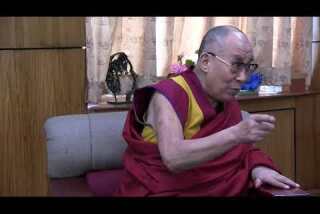
Dalai Lama: Three commitments in the next 10 years
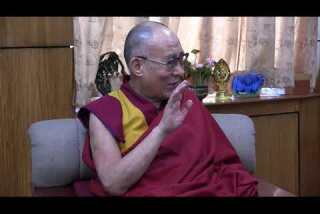
The Dalai Lama on the communist party and reincarnation
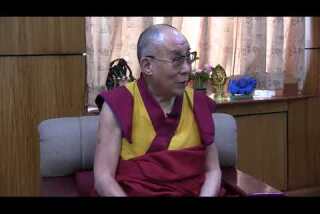
The Dalai Lama's advice to Obama
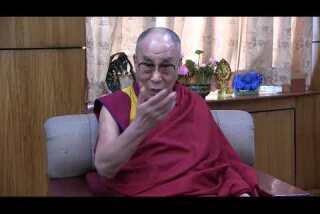
Dalai Lama on being invited to visit Tibet, China
“People will tell you they are going back because they miss their families, but many are also disappointed in the Tibetan government,’’ said Tashi, 30, who has spent eight years in Dharamsala. He comes from China’s Sichuan province, which abuts Tibet and includes some traditionally Tibetan towns.
“They see that the exile government cannot do anything for the people inside Tibet,” he added.
The Dalai Lama, though, exudes confidence. His handshake is firm. He carries a conversation in English without hesitation, pausing only on a few occasions to ask an assistant’s help in translating a complex thought. He stumbles only over a weak knee.
In the rose garden outside his office, he seems inexhaustible as he greets a long reception line of misty-eyed acolytes, including Tibetans in sweeping cloaks, an Indian movie star, a British artist and a delegation of mainland Chinese. They cling to him and, reaching under the folds of crimson robes, kiss his brown lace-up shoes.
The Dalai Lama obligingly strokes their cheeks and poses for photos, until his aides steer him away and with a squirt of hand sanitizer directs him to the interview.
Among the droves of admirers who travel to northern India to pay homage to the Dalai Lama are many Han Chinese Buddhists, some well-to-do.
The Dalai Lama gives priority to meeting those Buddhists from the mainland, explaining to them his wishes for autonomy rather than independence.
“They are our secret weapon,’’ joked Tenzin Taklha, the Dalai Lama’s chief secretary, pointing to a delegation that was visiting in early May. During his talks with the Chinese pilgrims, the Dalai Lama often goes out of his way to praise Chinese President Xi Jinping and his campaign against corruption.
Ending a centuries-old theocratic system, the Dalai Lama officially retired in 2011 as head of the exile government, giving up the leadership to an elected prime minister, Harvard-educated Lobsang Sangay. This fledgling experiment in democracy is something about which the Dalai Lama is very proud, but it has in effect thwarted talks with the Chinese, who will not negotiate with an exile government.
“They feel that would give credibility to my administration,” Lobsang Sangay said in an interview. “They want envoys of the Dalai Lama to talk to them directly like before.”
Although there have been no formal negotiations in five years, Chinese intermediaries have hinted that the Dalai Lama could be invited to China, if not to visit Tibet, then to make a pilgrimage to Mt. Wutai, a Buddhist holy site in Shanxi province.
“I have no preconditions for visiting Tibet or China. No conditions at all,’’ said the Dalai Lama, although he added, “I should have the freedom to teach and explain Buddha dharma to the Buddhists.’’
The Dalai Lama said he approves of exiles returning to Tibet so that they can educate those who are there.
“Those Tibetans who are educated here and have a broader view of the world would be useful to the Tibetans inside Tibet. Therefore, I suggest that they go back and work,’’ he said.
The Dalai Lama, who has long played down any confrontation with China while calling for dialogue, said he has no objection to Tibetans learning Chinese or even joining the Communist Party.
In conversation, as in most other public pursuits, he is relentlessly cheerful, even giggly.
He laughed off his setbacks, refusing to take the bait when asked questions designed to pique anger.
“Yes, it was the Chinese doing that South Africa denied me a visa,’’ he acknowledged without apparent rancor. As for the pope, he said, “I understand that the Vatican has to take care of Chinese Catholics in the People’s Republic of China. These are today’s realities.”
+++
The Dalai Lama’s upcoming birthday is occasioning celebrations around the world.
The monk will spend his birthday at a three-day Global Compassion Summit in Anaheim, beginning Sunday. Last weekend, he made a surprise appearance at a music festival in Glastonbury, England, where singer Patti Smith, one of his many celebrity admirers, presented him with a birthday cake.
The Chinese ... will find some cute little Tibetan boy they can control.
— Jamyang Norbu, Tibetan novelist
In China, Tibetan communities have been marking the birthday since the Tibetan New Year in February, in defiance of authorities. In May, a 35-year-old father of four in Sichuan province immolated himself to protest a crackdown on birthday celebrations.
On the Tibetan calendar, the birthday fell on June 21 and was marked by prayer ceremonies and picnics held mostly out of view of authorities.
Among Tibetans the birthday also has occasioned trepidation: It is a reminder, in a society that believes in a succession of lives, of the tyranny of mortality when it comes to their spiritual leader.
The rudest question to ask the Dalai Lama — and one that no one can resist — is what happens after he dies.
The Dalai Lama is so tired of being asked about his health that his secretary, Tenzin Taklha, who is also his nephew, hands interviewers an 11-page primer entitled “Statement of His Holiness the Fourteenth Dalai Lama, Tenzin Gyatso, on the issue of His Reincarnation.”
According to Buddhist doctrine, the Dalai Lama should be reincarnated in the body of a newborn boy who will become the 15th Dalai Lama, after being identified by the proper religious authorities.
In the statement, however, the Dalai Lama leaves open the possibility that he, as a “superior Bodhisattva … can manifest his own emanation before death.” Practically speaking, that means he could name his successor, possibly an adult who has been groomed for the position.
The succession question has been pushed aside for another decade: The Dalai Lama says he will wait until he is about 90 and then convene an advisory group of high lamas to resolve it. One option, he has said, would be to discontinue the tradition of the Dalai Lama entirely.
Despite its professed atheism, the Chinese government wants to control the process. The State Religious Affairs Bureau Order No. 5 prohibits the reincarnation of a monk without a permit.
Beijing has indicated it will put forth its own candidate as the reincarnated Dalai Lama, setting the stage for an inevitable conflict because China’s choice is unlikely to be accepted by most Tibetans.
In 1995, the Chinese government picked a 6-year-old child to succeed the Panchen Lama, the second highest figure in Tibetan Buddhism. Another child who was selected by the Tibetans was whisked away by Chinese authorities (supposedly for his own protection) and hasn’t been heard from since.
The Dalai Lama has rejected all attempts at Chinese intervention though. “First of all, these people do not understand the theory of rebirth. Secondly, they had no knowledge of Tibetan tradition and do not know the history of successive Dalai Lamas, Panchen Lamas and other reincarnated lamas of Tibet. I feel that the Chinese officials should pay more attention and study these histories in an unbiased and objective manner.’’
Some Tibetans are exasperated by the Dalai Lama’s lack of urgency.
“He is acting very irresponsibly,’’ said Jamyang Norbu, a Tibetan novelist and essayist who lives in Tennessee. “The Chinese have already set up a commission to pick the next Dalai Lama. If we don’t get in on the game, they will do it before us. They will find some cute little Tibetan boy they can control.’’
Norbu, who tends to articulate frustrations that few others voice publicly, has long criticized the Dalai Lama for being too soft on China.
“It is not that the Tibetan people have given up their goals,” he said. “His holiness has given up.”
More to Read
Start your day right
Sign up for Essential California for news, features and recommendations from the L.A. Times and beyond in your inbox six days a week.
You may occasionally receive promotional content from the Los Angeles Times.
